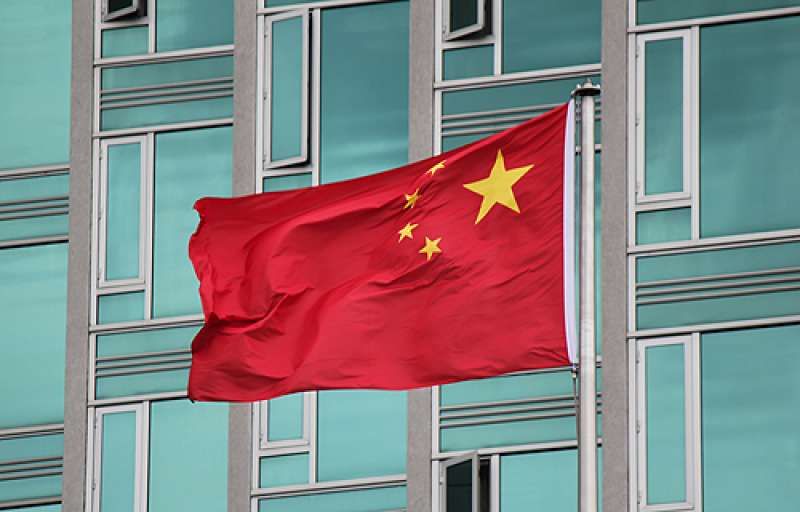As the Holy See reportedly negotiates a deal with the government of mainland China, some Catholic residents of a town in the country's Hebei province are raising concerns over the anticipated agreement.
Youtong is home to around 5,000 people, about half of whom are Catholic, according to Christian Shepherd and Dami Sagolj, writing for Reuters. Many of the homes are decorated with Christian messages of “Emmanuel,” or signs reading, “We have faith in you, Jesus.”
The town holds a number of churches, including a church belonging to the Chinese Patriotic Catholic Association, two large underground churches, and several unofficial house churches.
The Catholic Church in China has been split between the government-sanctioned Chinese Patriotic Catholic Association and the underground Church, which is persecuted and whose episcopal appointments are frequently not acknowledged by Chinese authorities.
The underground churches are monitored by local officials but generally tolerated. However, many underground priests, bishops, and laity have faced persecution and harassment.
“While some Catholics in Youtong told Reuters that a long-awaited agreement could bring clarity and freedom to practice their religion openly, others said they worry the deal will sow further discord in the community,” Shepherd and Sagolj wrote. Reuters visited Youtong March 30, Good Friday.
One underground church in Youtong is led by Bishop Pei Ronggui, 84. Pei spent four years in a labor camp after his church was raided in 1989. He said in 2016 that the government would have to change its attitude before any deal with the Vatican would be workable.
When Reuters visited Pei, he “appeared to be under pressure from authorities.” He was accompanied by a man “wearing a belt with a police emblem buckle” who “said Pei could not hear well enough to do an interview, ushering him away.”
“The same man then followed Reuters journalists for the next 24 hours, joined intermittently by others in as many five vehicles, underscoring the sensitivity of the situation.”
Fr. Dong Guanhua, who pastors another underground church in Youtong, said the Vatican-China deal would only draw more people to the underground churches. He expressed concern over any compromises the Vatican would make to ensure the accord.
“The word ‘compromise’ sounds good, but to some churchgoers it will sound like you are abandoning your faith,” Dong said. He claimed in 2016 that he had been secretly consecrated a bishop 11 years earlier, but the Vatican has said a consecration of Dong had not been authorized.
“People say I am trying to break away, but in fact I am sticking to the old road, while the Vatican’s policy changes,” he continued.
One villager said that Dong “does not listen to anyone,” but that some people “like his style, because he tells it like it is.”
At the church of the Chinese Patriotic Catholic Association, Fr. Ju Ruibin “rescinded an earlier invitation” to Reuters to attend Good Friday services at his church “after apparent pressure” from the men who followed the reporters.
Shepherd and Sagolj wrote that “While relations among the rival churches are cordial, some villagers warned that local schisms could arise from renewed attempts to push together the state-sanctioned Chinese Catholic Patriotic Association … and underground churches loyal to Pope Francis.”
But one townsman, Pei Ziming, said the Vatican-China accord is somewhat contradictory, since the two countries have opposing agendas.
“They say you can see what truly matters to a country by considering its architecture,” Pei said.
“In many European countries, the biggest buildings are the churches. In China, the biggest buildings are all banks and government offices, because that’s where real faith lies.”
The Chinese government under President Xi Jinping has been pursuing efforts to “Sinicize” religion within the nation. Xi, in his role as general secretary of the Communist Party, has encouraged “new approaches” to religious and ethnic affairs.
The Holy See is in negotiations with the Chinese government that could eventually lead to Vatican recognition of seven illicitly ordained bishops aligned with Beijing and to a more normal life for underground Catholics.
A Chinese government official who oversees religious affairs said April 3 that government restrictions on bishop appointments are not a violation of religious freedom, as he emphasized that religions in China must “adapt to socialist society.” The official, Chen Zongrong, added that “I believe there is no religion in human society that transcends nations.”
Cardinal Joseph Zen Ze-kiun, a Bishop Emeritus of Hong Kong, has been notably opposed to any agreement with the Chinese government, saying, “better no deal than a bad deal.”
And one commentator has written that “For all the Vatican’s efforts to cement a deal with China, there is no clear prize at the end of the road. Every new report suggests that, by accepting Communist nomination of episcopal appointees, the Church will cede considerable practical authority over the Church in China. Worse, as the arrest of Bishop Guo and the threat to Vatican-Taiwan relations show, the moral authority of the Church is being materially sacrificed.”

